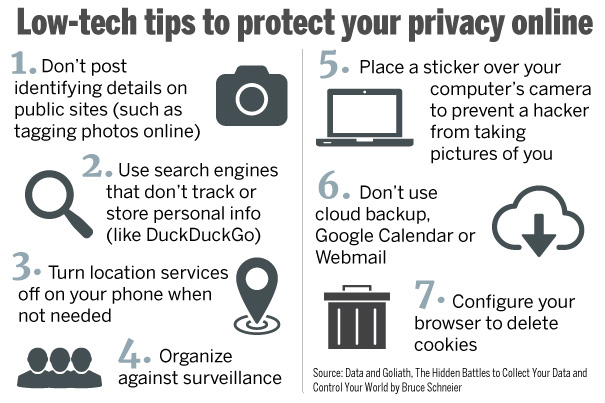- Cookie 5 7 6 – Protect Your Online Privacy Concerns Without
- Cookie 5 7 6 – Protect Your Online Privacy Concerns Among
Concerned about health and safety on the job?
Learn how OSHA protects you, and what to do if you think you are not protected at work.
Concerned about health and safety on the job?
These entities may use cookies, web beacons, device identifiers and other technologies to collect information about your use of the Services and other websites and applications, including your IP address, web browser, mobile network information, pages viewed, time spent on pages or in apps, links clicked, and conversion information (but NOT. Data with special protections: You can choose to provide information in your Facebook profile fields or Life Events about your religious views, political views, who you are 'interested in,' or your health. This and other information (such as racial or ethnic origin, philosophical beliefs or trade union membership) could be subject to special. The privacy and cookie policy generator allows you to create a customized privacy and cookie policy for your website/app in a few clicks without the need for technical or legal skills. These solutions are currently available in 8 languages: Italian, English, French.
Learn how OSHA protects you, and what to do if you think you are not protected at work.
Concerned about health and safety on the job?
Learn how OSHA protects you, and what to do if you think you are not protected at work.
Concerned about health and safety on the job?
Learn how OSHA protects you, and what to do if you think you are not protected at work.
PreviousNext
Know Your Rights
Quiver 3 1 3 – the programmers notebook. Federal law entitles you to a safe workplace. Your employer must keep your workplace free of known health and safety hazards. You have the right to speak up about hazards without fear of retaliation. You also have the right to:
- Receive workplace safety and health training in a language you understand
- Work on machines that are safe
- Receive required safety equipment, such as gloves or a harness and lifeline for falls
- Be protected from toxic chemicals
- Request an OSHA inspection, and speak to the inspector
- Report an injury or illness, and get copies of your medical records
- Review records of work-related injuries and illnesses
- See results of tests taken to find workplace hazards
When to File a Complaint
Safety and Health Complaint
If you believe working conditions are unsafe or unhealthful, you may file a confidential complaint with OSHA and ask for an inspection. If possible, tell your employer about your concerns.
Cookie 5 7 6 – Protect Your Online Privacy Concerns Without
Protection from Retaliation
It is illegal for an employer to fire, demote, transfer or otherwise retaliate against a worker who complains to OSHA and uses their legal rights. If you believe you have been retaliated against in any way, file a whistleblower complaint within 30 days of the alleged retaliation.
Cookie 5 7 6 – Protect Your Online Privacy Concerns Among
Contact OSHA
To discuss a health and safety issue at work, contact OSHA toll-free at 1-800-321-6742 (OSHA) or by email, or contact your nearest OSHA office. Your information will be kept confidential.
Workers' Rights Booklet
English | Spanish | Available in Print Elimisoft app uninstaller 2 4 for mac free download.Temporary Workers Pamphlet
English | Spanish | Available in PrintAs a Worker, You Have the Right.. Magnet
English | Spanish | Vietnamese
Employer Injury and Illness Data
Common Hazard Citations
- See a list of the top 10 most frequently cited standards across all industries.
- Search for commonly cited workplace hazards with your employer's North American Industry Classification System (NAICS) code. Once you know your six-digit code, visit OSHA's Frequently Cited OSHA Standards page, enter your NAICS code and view the information for last year.
OSHA Law and Standards
The Occupational Safety and Health Act of 1970 created OSHA, which sets and enforces protective workplace safety and health standards. There are OSHA standards for construction, agriculture, maritime and general industry. Employers also must comply with the General Duty Clause of the OSH Act, which requires them to keep their workplaces free of serious recognized hazards.
